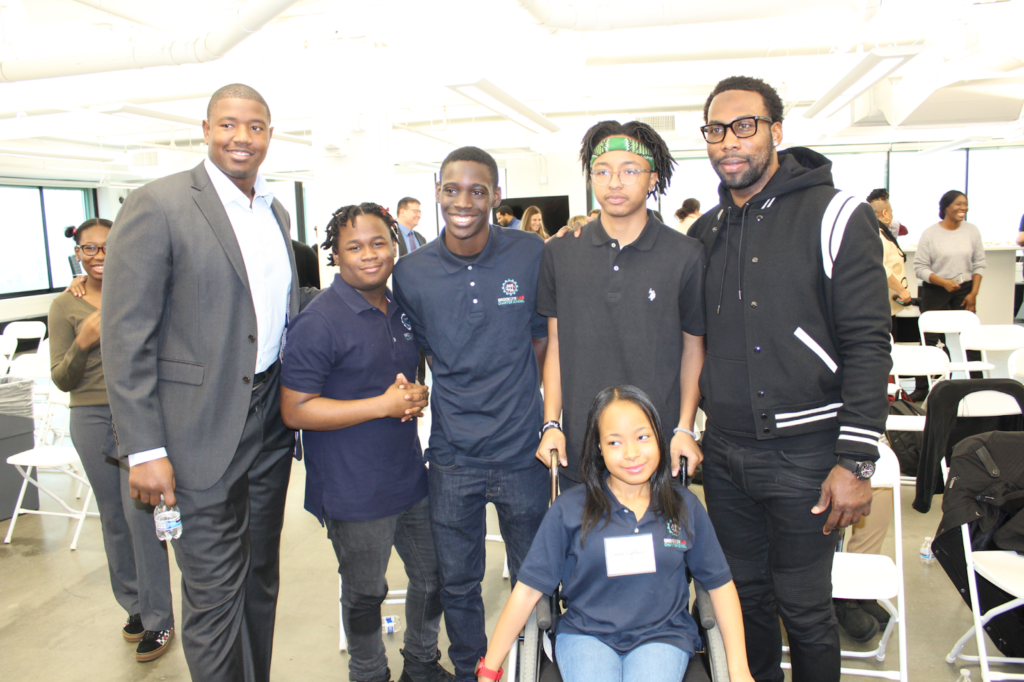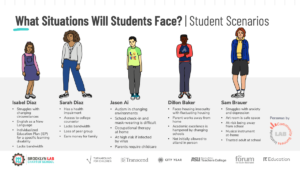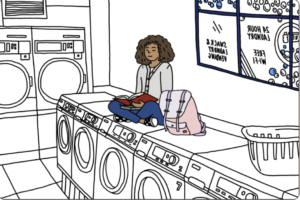The White House is Right: It’s Time for Schools to Invest in Student Success
Key Points
-
Trauma and stress are drowning students.
-
President Biden took a first step during his State of the Union address last night when he announced a critical way to help students recover from these challenges.
-
By showing up for our students, our school communities have the potential to cultivate well-being within schools and beyond.

Like all Americans, students have experienced undue hardship over the past two years as the pandemic forced them out of school and climbing cases put them at risk when school doors reopened. The recession, followed by rising food and gas prices, have caused financial instability and many families lost their income during long lockdowns. For young people, these events happened against a backdrop of systemic racism, gun violence, social media pressures, and now the first war of their generation.
Trauma and stress are drowning students. Three-quarters of high school students say their mental health has worsened since the start of the pandemic, and while many also show signs of resilience and hope, students of all ages say they’re anxious, lonely, depressed, and scared. 66% of high school students say they are disengaged from learning.
One of the defining features of adolescence is the ability to see and plan for the future, but right now they’re caught in a spin cycle of despair. It’s time for adults to help.
President Biden took a first step during his State of the Union address last night when he announced a critical way to help students recover from these challenges and set them up for future success: Make sure every student has access to individual support.
In a far-reaching strategy to address the nation’s mental health crisis, the White House yesterday committed the Department of Education to activate schools to provide tailored support for students through individual and small-group instruction, high-impact tutoring, summer learning, and after-school enrichment. The White House put it bluntly, “We need more caring adults taking on roles supporting students.”
By showing up for our students, our school communities have the potential to cultivate well-being within schools and beyond.
Pamela Cantor and Eric Tucker
The White House recommends that schools invest in programs that build relationships between students and trusted adults who can support youth with all of their needs, from learning to mental and emotional support.
As educators, we know these programs work. Developmental and learning science have shown that relationships are the antidote to stress and the engine for motivation and learning. Schools and communities designed using the principles of Whole Child Design can become the kind of safety nets students need if we as educators take the steps to create this kind of network of support. It’s time for us to invest in the power of relationships to change the trajectory of children’s lives in this critical moment.
One way schools can do this is by training success coaches, a volunteer corps of trusted adults who make sure every student has the right support at the right time. Done right, success coaching programs can help students learn, navigate uncertainty, and cultivate resilience.
At Brooklyn Lab, we started designing and launching our success coaching program the Spring of 2020 by recruiting teachers, staff members, and even community volunteers. To make it easier to train and onboard coaches, we created a research-based Success Coaching Playbook with partners from across the sector and disciplines, which we have shared with other schools. Starting in 2020, our coaches began meeting with students one on one every week and made themselves available on-call to help students whenever a need came up.

Building on work done by EL Education, we have also piloted small-group “advisories” composed of students and facilitated by caring adults who prioritize safety, belonging, and proactively address social and emotional concerns.
We have also trained every adult in the school building—from teachers to sports coaches—to form positive relationships with students using strategies such as a “2×10”: two-minute conversations between a teacher and student held every school day for 10 days in a row.
Since making these investments, we have seen dramatic changes both for students and for our school community. Success coaches have helped our students process pain and trauma and cultivate motivation and engagement. They have also relieved pressure on parents, creating a larger social safety net for students. And they have brought our community together at a time when social isolation and divisive political discourse is tearing many communities apart.
In announcing the mental health strategy, the White House underscored the importance of restoring our kids’ relationships: “Our youth have been particularly impacted as losses from COVID and disruptions in routines and relationships have led to increased social isolation, anxiety, and learning loss.”
They’re right. What young people need now are consistent, caring, attuned relationships that build safety, trust, and belief in their futures. Our success coaching program taught us that, with the right support, every student can feel connected again and thrive. The program has truly transformed student lives.
The last two years in education have brought unprecedented challenges for our communities, and our students and families deserve extra support to help them thrive. By showing up for our students, our school communities have the potential to cultivate well-being within schools and beyond. We are hopeful that this approach can help us build a better future—a future in which everyone in the community shares in our collective responsibility to help the next generation succeed.
The Success Coaching Playbook was developed alongside partners City Year, EL Education, The Forum for Youth Investment, The Mary Lou Fulton Teachers College at Arizona State University, Transcend, Turnaround for Children, and Dezudio.

Pamela Cantor








0 Comments
Leave a Comment
Your email address will not be published. All fields are required.